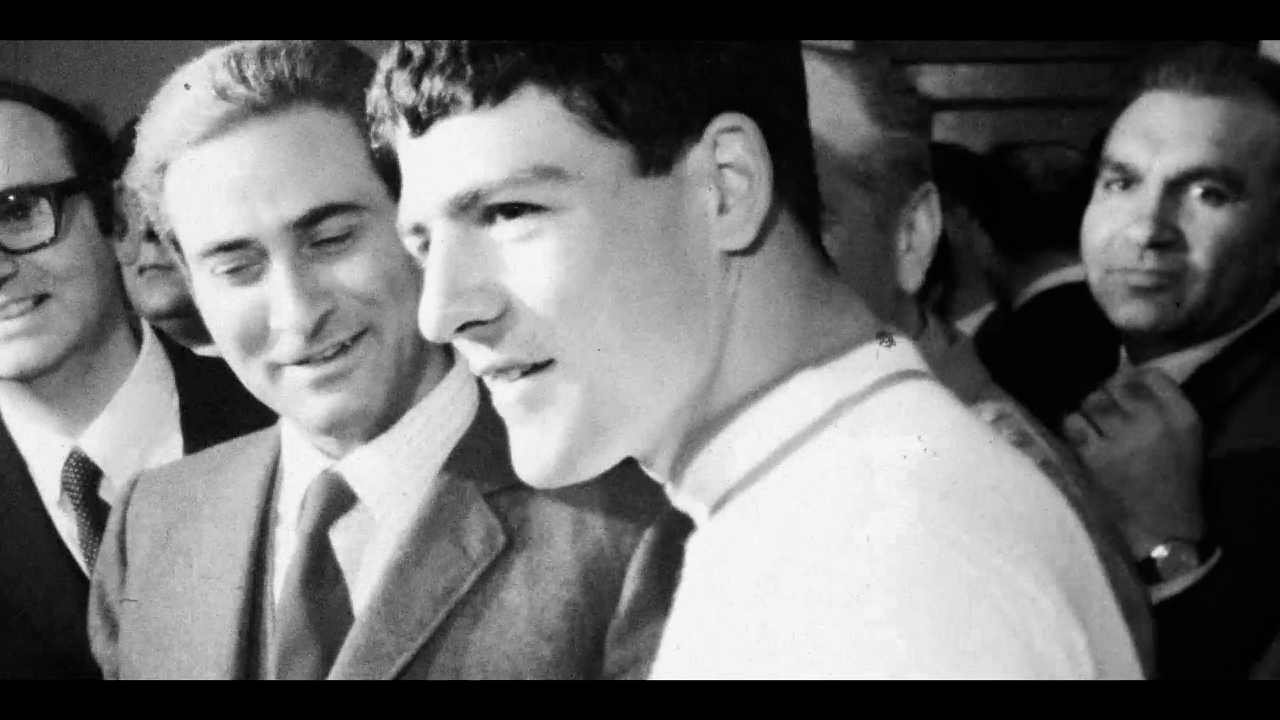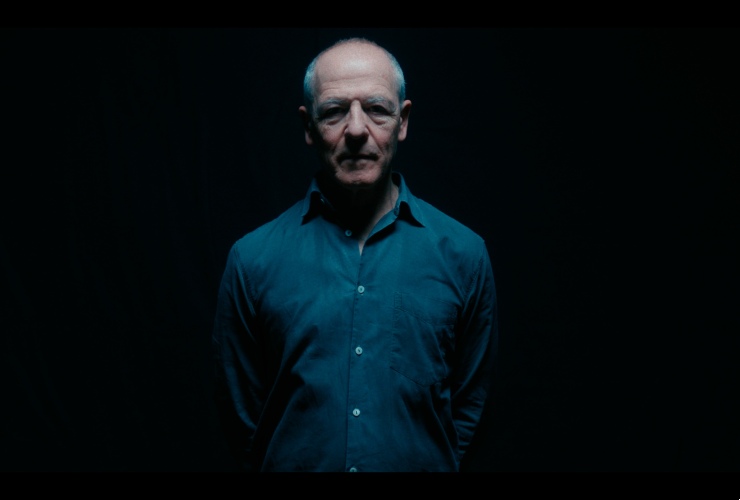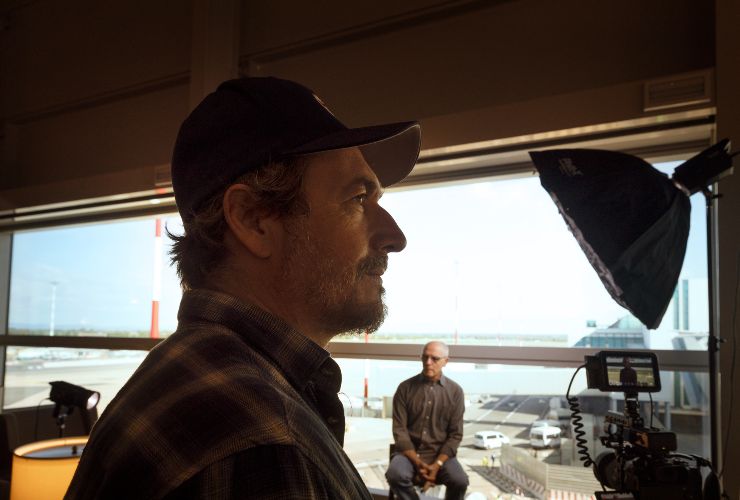Entertainment
Kill me if you can plot when Raffaele Minichiello comes out
Published
2 years agoon
By
Robert King
Among the films contained in the Special Screenings section of the 17th edition of the Rome Film Festival is Kill Me If You Can. The documentary directed by Alex Infascelli stars former Italian-American sailor Raffele Minichiello, responsible for the first case of intercontinental air hijacking and the longest hijacking in the history of civil aviation.
The choice of the film’s title has a very specific origin. The director, in fact, was inspired by the phrase that Minichiello engraved on the helmet of his uniform, “Kill me if you can”, when at the age of 18 he was serving in Vietnam. These are provocative words that make us understand the combative character and defiant air that accompanied the former marine throughout his life, even after the war. Alex Infascelli with this documentary, which focuses less on the plane hijacking affair than on the years that followed it, wanted to show the human part of Raffaele Minichiello by detaching himself from the character described in the newspapers. The film, distributed by Wanted Cinema, will hit theaters in February 2023.

Synopsis Kill me if you can
Kill Me If You Can begins with the story of an event that took place on October 31, 1969. The protagonist of the documentary, Raffaele Minichiello, was born in Melito Irpino in 1949. The earthquake that destroyed the entire Irpinia in 1962, however, prompted the Minichiello family to move to the United States. At that time, Raffele was 14 years old and when he arrived in Seattle he felt completely lost, unable to fit in with his new American companions. This prompted him, at the age of 18, to enlist in the Marines and on December 15, 1967, he left to fight the Vietnam War.
 Raffaele Minichiello
Raffaele Minichiello
And it was immediately after returning home that he decided to hijack a TWA jet departing from Los Angeles for San Francisco. He wants to go to Cairo, Egypt, but his journey ends in Rome where he is captured and arrested. And even after the trial, which sees him sentenced to a year and a half in prison, Raffaele Minichiello’s life will continue to be marked by personal dramas and problems of all kinds. Kill me if you can, therefore, understood not only in a figurative sense, but also in an abstract sense. Indeed, although life has reserved for the former sailor a long series of terrible sufferings, his will to live and to resist despite everything prevails.
Alex Infascelli and Rafflee Minichiello reveal some details about the documentary
Alex Infascelli and Raffaele Minichiello meet the public and the press after the preview screening of the documentary. The protagonist, when asked how he reacted to seeing his life summed up in a film, replies: “I always wanted to tell my story. Because I think it can be a useful story for a lot of people, it can be a story for a lot of us. Obviously, many episodes of my life are out of the ordinary, but many other things that have happened to me can happen to anyone. I think it can be useful for people who see it because my life is like falling and getting up all the time, both due to very serious mistakes and unpredictable situations beyond my control. I never considered myself a victim, we must continue to fight ”.
 Director Alex Infascelli
Director Alex Infascelli
A theme that emerges particularly strongly from the film is the difference between Italian and American thought also from the point of view of justice. And on this subject, the director specifies: “I had the opportunity at this moment of the film to tell a conflict between the United States and Italy. It’s funny how American television describes Raffaele as a crazy madman, a very dangerous ex-marine who pointed his gun at the crew’s temples when in reality, while he was on the plane, he played cards, fell in love, went to the bathroom leaving the rifle unattended next to the commander. On the other hand, there are the Italians, who also arbitrarily considered Rafele the hero who saved the fatherland. They are actually two similar faces. These are two worlds that I compared, letting emerge a battle between the parties”.
Recent News


4 Amazing Trips for Your Family
Choosing somewhere for a family vacation that would pique the attention of adults and kids alike can be a fun...


Customising Your Makeup with Blendable Blush Options
In cosmetics, one’s face is a canvas for self-expression and creativity. Among the myriad of products available, blush is a...


The Benefits of Regular Home Maintenance
Regular home maintenance is essential for maintaining and even raising the value of your house. A proactive approach to repairs...


Understanding the Importance of SEO in Adelaide
In the digital marketplace, Adelaide businesses are in a continuous contest to gain the attention of their target audiences. With...


Breaking Down the Numbers: Understanding the Average Traveling Nurses Pay
The open road, adventure, and the chance to heal – travel nursing promises an undeniable allure. But amidst the excitement,...


Dealing with Oily Skin in Summer: Tips and Tricks
As the temperature rises, those with oily skin often face an additional challenge—maintaining a clear and balanced complexion. Excess oil...


Mountain Wedding Ideas for 2024
A mountain wedding is a stunning choice for couples who cherish nature and desire a distinctive wedding experience. Whether you...


3 Of The Best Ways To Keep Your Salon Clean
It is of the utmost importance to ensure that a salon is kept scrupulously clean, not just for the sake...


3 Reasons You Should Get Blood Tests Every Year
Regular blood tests are essential for preserving general health and identifying potential problems early on. Medical professionals can evaluate your...


How to Make Your Next Crafts Project Pop
Crafting is a creative outlet that allows individuals to express themselves through various mediums such as paper crafts, sewing, painting,...
